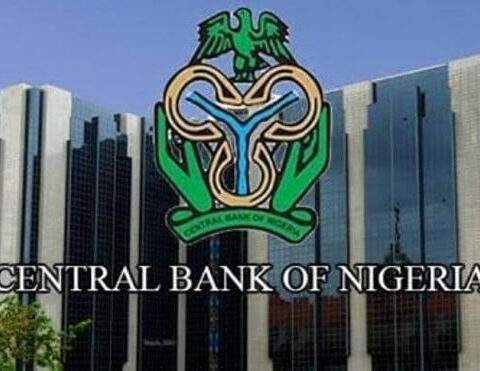The Central Bank of Nigeria (CBN) has issued a circular instructing Deposit Money Banks to sell off excess dollar stocks by February 1, 2024.
The directive comes as part of a broader effort to curb the growing trend of commercial banks holding large foreign currency positions, with the CBN expressing concerns about potential profit-driven hoarding.
Join our WhatsApp ChannelIn the circular titled “Harmonisation of Reporting Requirements on Foreign Currency Exposures of Banks,” the CBN revealed its worries about the risks associated with banks maintaining substantial foreign exchange positions.
The move follows a recent adjustment in the methodology used for calculating the official exchange rate, aligning the Nigerian Autonomous Foreign Exchange Market rate with the parallel market rate.
READ ALSO: Relocation Of Some CBN Units To Lagos Will Ensure Efficient Oversight Of Banks – Economist
Economists and stakeholders have applauded the attempt to unify the exchange rates but urged the CBN to address the backlog of over $5 billion in foreign exchange and meet demands at the official market. The latest circular accuses banks of holding excess foreign exchange positions and provides guidelines to reduce associated risks.
Dr. Hassan Mahmud, Director of Trade and Exchange at the CBN, stated, “The Central Bank of Nigeria has noted with concern the growth in foreign currency exposures of banks through their Net Open Position (NOP). This has created an incentive for banks to hold excess long foreign currency positions, which exposes banks to foreign exchange and other risks.”
The CBN has imposed prudential requirements on banks, emphasizing the management of the Net Open Position (NOP). Banks are mandated not to exceed 20 percent short or 0 percent long of their shareholders’ funds in NOP. Non-compliance with these limits will result in immediate sanctions and suspension from the foreign exchange market.
Banks with current NOPs exceeding the limits must adjust their positions to comply with the new regulations by February 1, 2024. Additionally, the CBN directed banks to calculate daily and monthly NOP and Foreign Currency Trading Position (FCT) using specific templates provided by the central bank.
To ensure accurate reporting, banks are required to adopt adequate treasury and risk management systems, maintaining sufficient stocks of high-quality liquid foreign assets. The CBN warned of sanctions for non-compliance and emphasized the need for banks to bring all their exposures within the set limits immediately.
A top bank executive, speaking anonymously, suggested that the circular would force banks to sell off excess dollar liquidity exceeding $5 billion, anticipating that this would bring liquidity, stabilize the exchange rate, and attract foreign investors.
In response to the directive, the naira closed at N1,455.59/$ at the official window, reflecting a 1.82 percent appreciation from the previous day. However, concerns arise in the parallel market, where the naira lost N61 to trade at N1,511/$, prompting some Bureau De Change operators to implement a ‘no sales policy’ to address the falling naira.
The Senate’s Committee on Banking, Insurance, and Other Financial Institutions has summoned CBN Governor Olayemi Cardoso to appear on Tuesday to address concerns about the economy and the naira’s depreciation in the forex market. The naira hit an all-time low of N1,482 to $1 at the official window, prompting the Senate’s action.
Emmanuel Ochayi is a journalist. He is a graduate of the University of Lagos, School of first choice and the nations pride. Emmanuel is keen on exploring writing angles in different areas, including Business, climate change, politics, Education, and others.













